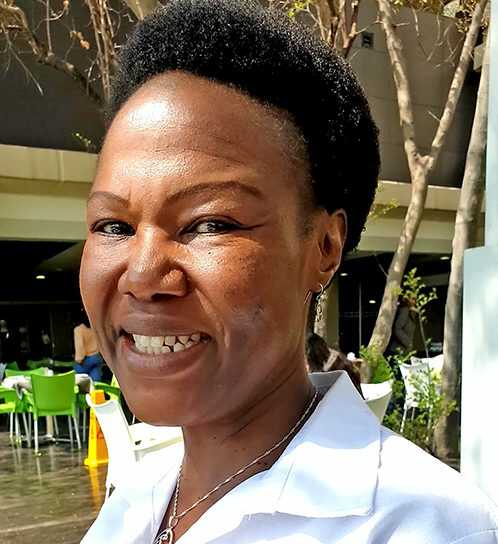A team of 18 interdisciplinary scientists, all from previously disadvantaged backgrounds under the leadership of award-winning researcher Dr Patience Mthunzi-Kufa, is just months away from commercialising a revolutionary diagnostic device, which will dramatically reduce the turnaround time for detecting diseases, especially in poorly resourced, far flung and under-serviced communities.
Mthunzi-Kufa, who leads the biophotonics facility at the Council for Scientific and Industrial Research (CSIR), said the smartphone-based tool will screen for communicable diseases such as Covid-19, HIV and tuberculosis, and non-communicable diseases such as diabetes and hypertension.
Presenting her research as part of the CSIR’s women’s month showcase under the theme, “Women in Science: Proactively responding to health and nutritional challenges impacting under-served communities”, she provided a peek into the results as part of the display at the event.
“We have essentially miniaturised a laboratory … a sample would be taken for analysis through a smartphone,” she said.
“Instead of a patient waiting 48 to 72 hours to get lab diagnostic results, they can get their results in half an hour, for example, from collection [of the sample] to the actual report.
“There are areas in KwaZulu-Natal, for example, where patients, including the elderly, walk for many kilometres to a clinic for tests,” she said, adding that the early detection of illness is important in treatment.
The 46-year-old Mthunzi-Kufa, from Soweto, studied biochemistry up to master’s level at the Rand Afrikaans University, now the University of Johannesburg. Funded by the CSIR, she did a PhD in laser physics at the University of St Andrews in Scotland and graduated in 2006.
She said her team at the biophotonics facility at the CSIR is vibrant. “Biophotonics is a multidisciplinary field. We are unique locally and globally in that we are playing in different spaces.
“We are working on photonics but we have a good understanding of micro-organisms, and we are also making and designing medical devices,” said the mother of two who was named in the top 10 of Forbes’ Youngest Power Women in Africa 2012.
Explaining the invention, Mthunzi-Kufa said she and her team asked what they can do to make the lives of the millions of people in rural areas easier by getting their diagnostics done. “We came up with the idea of making a point-of-care diagnostic tool. We made a cellphone-based diagnostic. It has novel software and hardware that’s built on a phone,” she said.
“A patient can take any of their bodily fluids and get an image of what the results look like. We have built an app that will then take the results to the cloud … a doctor will diagnose and then tell the patient what to do further.”
Mthunzi-Kufa, who received the Order of Mapungubwe in Bronze in 2012, said they will apply for ethical clearance from the South African Health Products Regulatory Authority to test the device on human samples. “And what better place to do it than here at CSIR with our staff. We already have a clinic,” she said.
“It is very close to commercialisation. We are hoping that in the coming few months we will have a minimum viable product that can be tested on humans. In a year’s time, we should have something in the market that can be used to generate real-life impact in rural areas or any point of care where the patient is.”
For more education news from Sunday World, click here.
Follow @SundayWorldZA on Twitter @sundayworldza on Instagram, or like our Facebook Page, Sunday World, by clicking here for the latest breaking news in South Africa. To Subscribe to Sunday World, click here.



